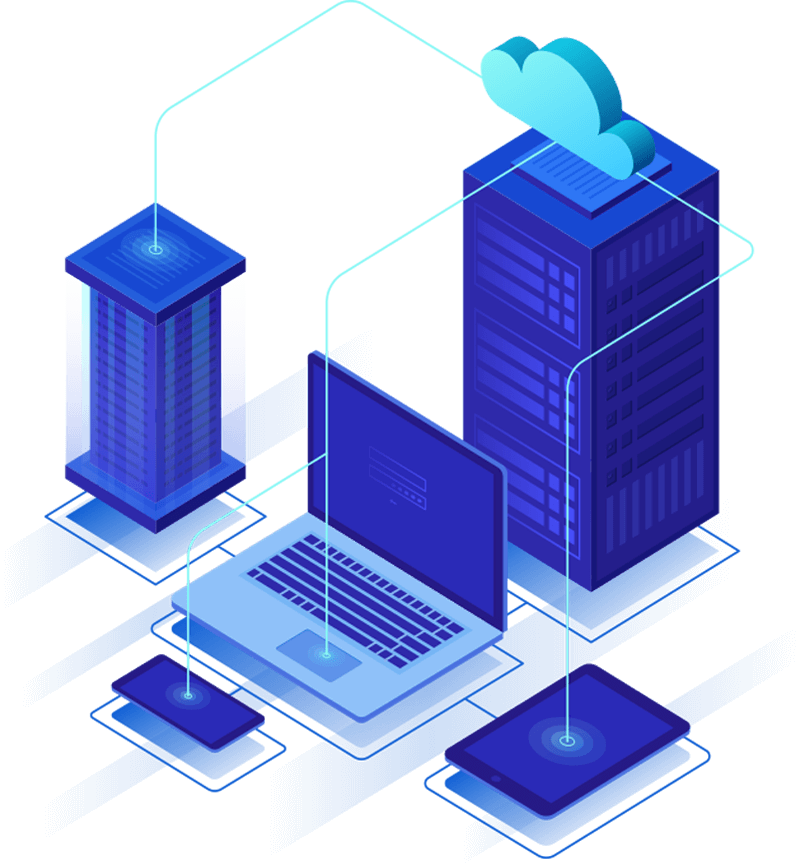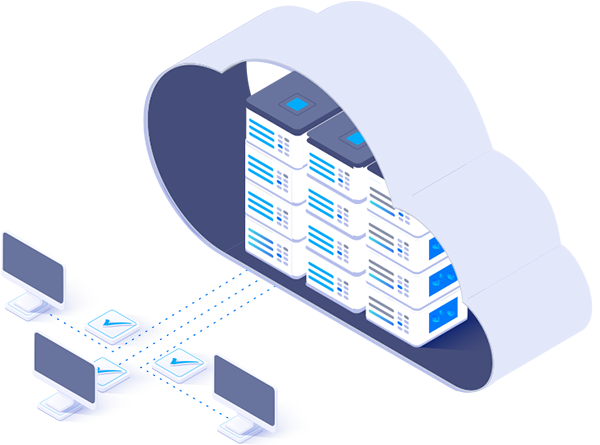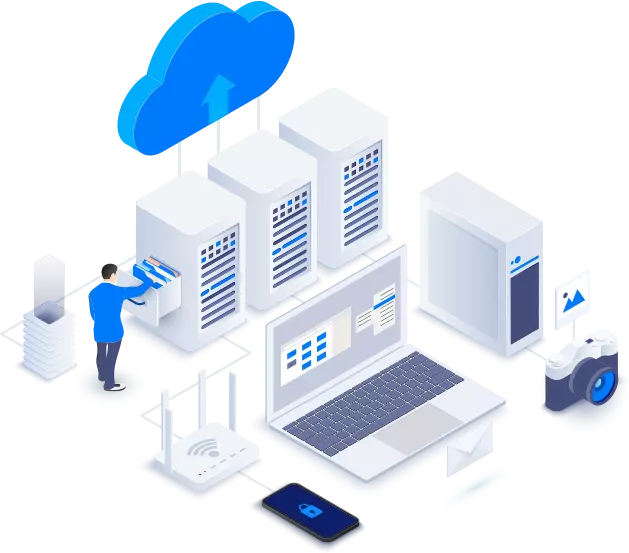Infrastructure as a Service
Infrastructure as a Service or IaaS is a cloud service. Here, the cloud service provider manages users’ entire business infrastructure that covers networking, server, visualization, and storage operations. This IaaS can be managed through a private or a public cloud. Furthermore, it can be used along with controlling resources as well.
IaaS cloud service providers offer tons of additional services for cloud-based app development, like Clustering, Load balancing, and Security instruments, such as PCI-DSS compliance, data encryption protocols, Log access, Resiliency tools or backup recovery and replication, Tracking and Detailed invoicing. In order to deploy IaaS cloud services, the user can use an admin panel or API for obtaining better directions. Besides, the user can also manage his/her own programs and operating systems while his/her cloud service provider manages resources for cloud app development.










